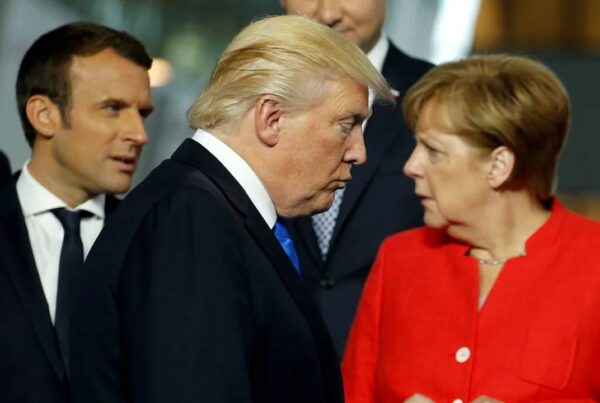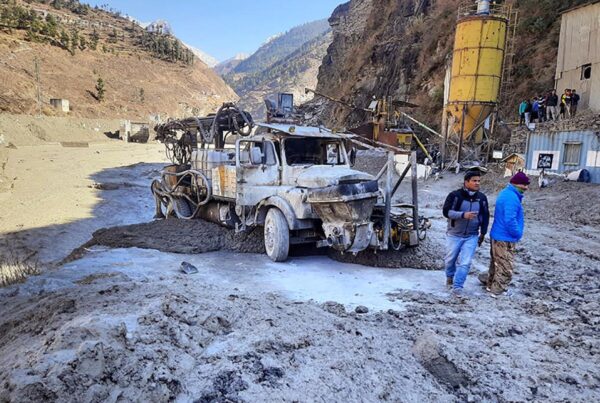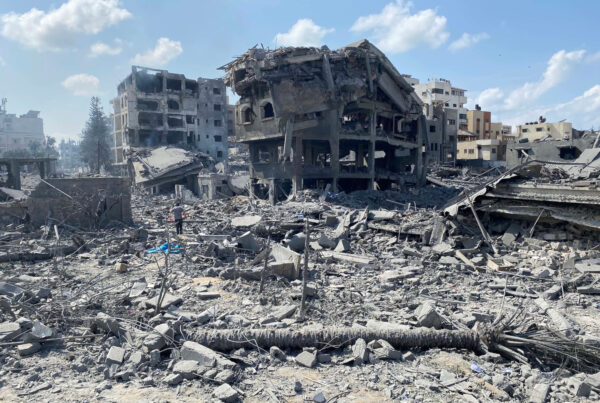A wave of recognition for Palestine has swept the international stage. Countries like France, the UK, Canada, and Australia formally recognized Palestinian sovereignty at the UN General Assembly. This move comes amid the ongoing war in Gaza, now in its second year, with over 60,000 Palestinian deaths reported by the Gaza Health Ministry. However, responses from key players reveal the complexity of the situation. Hamas welcomes the recognition but remains firm on its right to armed resistance. Meanwhile, Italian Prime Minister Giorgia Meloni sets stringent conditions for Italy’s support. US President Donald Trump also weighed in, voicing unwavering support for Israel. These dynamics create a web of contradictions in the pursuit of peace.
Hamas’s Response to Palestine Recognition
The recognition of Palestine by Western nations offers a boost to their cause. It’s seen as an acknowledgment of Palestinian rights to their land and sacred sites. Additionally, it supports the establishment of an independent state with Jerusalem as its capital. However, global pressure over the Gaza conflict has forced Hamas to respond cautiously. They link this recognition to the long struggle of Palestinian refugees. The situation also highlights internal Palestinian divisions, with the Palestinian Authority under Mahmud Abbas urging Hamas to surrender its weapons.
The two-state conference in New York further underscored Hamas’s stance. They insist recognition must come without conditions. Moreover, tangible actions to pressure Israel are critical. Hamas’s doctrine continues to view armed resistance as a legitimate right against occupation. This aligns with their charter, which rejects disarmament until a fully sovereign Palestinian state is established. This broader picture shows that recognition is not an endpoint but the start of complex negotiations.
Hamas’s Positive Reception
Hamas promptly welcomed the recognition from countries like France and the UK. In their official statement, they called it a victory for Palestinian rights. They tied it to long-awaited global justice. A quote from their 21 September 2025 communiqué stated, “This recognition must be followed by practical actions.” This reflects their hope that recognition goes beyond symbolism.
Furthermore, Hamas firmly rejected demands for disarmament. They view weapons as a legitimate defense tool. Analysis from the Jerusalem Post on 22 September 2025 noted how this stance bolsters Hamas’s domestic support in Gaza. Yet, it complicates negotiations with Israel. Palestinian reactions show a mix of hope and skepticism.
On the other hand, the recognition sparked global debate. Hamas urged concrete steps, like economic pressure on Israel. Data from Antara News on 23 September 2025 reported that Hamas will not relent until Palestine is fully independent. This positions recognition as a political tool, not an immediate solution.
International law experts from Hukumonline.com analyzed the implications. They said recognition could strengthen Palestine’s position at the UN. However, without US support, progress remains limited. Hamas’s response also influences public opinion in Indonesia, where many back Palestine.
Rejection of Disarmament Conditions
Hamas firmly rejected disarmament as a prerequisite for recognition. They consider it a legitimate right to resist occupation. Their 22 September 2025 statement emphasized that weapons would not be surrendered until pre-1967 borders are realized. This aligns with their resistance doctrine.
Moreover, they view these demands as attempts to weaken them. Analysis from CNN Indonesia on 22 September 2025 suggested this could repeat past negotiation failures like Camp David. The Palestinian Authority’s Mahmud Abbas urged Hamas to hand over weapons for unity.
Conversely, support from other militant groups strengthens Hamas’s position. Gaza’s 60,000 casualties further justify their stance. Experts from Republika ID on 23 September 2025 quoted, “We don’t need recognition; we need justice.” This reflects widespread Palestinian sentiment.
Mass protests globally support Hamas’s stance. Yet, concerns over conflict escalation persist. A link to a related Olam News article on Palestinian resistance history provides deeper context.
Giorgia Meloni’s Stance on Palestine Recognition
Italian Prime Minister Giorgia Meloni adopted a cautious approach to recognizing Palestine. Her pro-Israel government is open to recognition but with conditions. This shift comes amid mass protests in Italy over the Gaza war. Meloni moved from outright rejection due to domestic pressure. However, she stressed that recognition shouldn’t reward those who started the conflict.
The New York conference on 23 September 2025 gave Meloni a platform. She proposed a motion to Italy’s parliament for conditional recognition. This highlights how domestic politics shape foreign policy. It also reflects Europe’s divisions on the Israel-Palestine conflict.
Hostage Release Condition
Meloni insisted that releasing all Israeli hostages is a primary condition for recognition. Currently, about 48 hostages remain in Hamas’s custody. A quote from EuroNews on 25 September 2025 stated, “I’m not against recognizing Palestine, but we must focus on the right priorities.” This underscores her focus on humanitarian issues.
Additionally, Meloni blamed Hamas for rejecting ceasefires. Analysis from Merdeka.com on 25 September 2025 noted how this condition could stall progress. Italian protesters expressed dissatisfaction with the government’s stance.
On the other hand, the condition gained support from pro-Israel allies. Data from YouTube Metro TV reported violent protests in Italy. Experts suggest domestic pressure could shift policy. An external link to BBC for protest details offers further insight.
The condition’s implications are broad. It could delay recognition until hostages are freed. However, Hamas views this as coercion.
Removal of Hamas from Governance
Meloni’s second condition is Hamas’s complete removal from Palestinian governance. She sees Hamas as a barrier to peace. Her 24 September 2025 statement in Firstonline emphasized, “Recognition only with hostage release and without Hamas.” This aligns with the EU’s stance.
Furthermore, it pushes for Palestinian political unity. Analysis from Retoria.id on 25 September 2025 said Palestine must show commitment to stability. The Palestinian Authority supports this, but Hamas rejects it.
Conversely, the condition sparks ethical debates. Experts from Antara News called it interference. Protests in Italy highlight societal polarization. A link to an Olam News article on Hamas’s role provides more perspective.
Long-term implications include Gaza’s reconstruction without Hamas. However, this requires broad international support.
Donald Trump’s Support for Israel
US President Donald Trump firmly backs Israel in the Gaza conflict. He rejected recognizing Palestine now, calling it a reward for Hamas. His 23 September 2025 meeting with Arab leaders from Saudi Arabia, Qatar, and others discussed peace plans. Trump is optimistic about a nearing deal. Yet, he vowed to prevent Israel’s annexation of the West Bank.
The two-year Gaza conflict sets the backdrop. Trump presented a 21-point plan to end the war. It includes hostage and prisoner releases. This broader picture shows US diplomatic efforts amid global isolation.
Gaza Peace Plan
Trump unveiled a comprehensive Gaza plan at the UN. It includes hostage and prisoner releases. A CNN quote from 24 September 2025 claimed Trump is uniquely positioned for peace. The plan involves Arab forces for stabilization.
Moreover, it rejects annexation by Israel. Analysis from Al Jazeera on 23 September 2025 highlighted the Muslim leader meeting. Netanyahu responded positively but insisted Israel would finish its mission in Gaza.
On the other hand, Arab leaders set conditions. They opposed annexation and new settlements. Data from Reuters on 26 September 2025 showed intense talks. Experts say the plan could end the war if implemented.
Implications include Gaza’s reconstruction with Arab funding. An external link to Times of Israel details the plan.
Rejection of Current Palestine Recognition
Trump rejected recognizing Palestine now. He believes it undermines hostage release efforts. His 26 September 2025 New York Times statement said, “We have a deal.” This aligns with past policies like the Abraham Accords.
Additionally, Trump pressured Netanyahu against annexation. Analysis from BBC on 25 September 2025 highlighted US commitment. Hamas’s skeptical reaction labeled it as pro-Israel bias.
Conversely, it drew criticism from US allies. Experts from Politico on 26 September 2025 noted Netanyahu’s firm stance. A link to an Olam News article on the Abraham Accords offers context.
Long-term implications include direct Israel-Palestine talks. Without full support, peace remains elusive.
This wave of Palestine recognition highlights a global shift but is fraught with contradictions. Hamas stands firm, Meloni sets conditions, and Trump backs Israel. The situation remains fluid with escalation risks. For deeper analysis on the Middle East conflict, explore related articles on Olam News.






